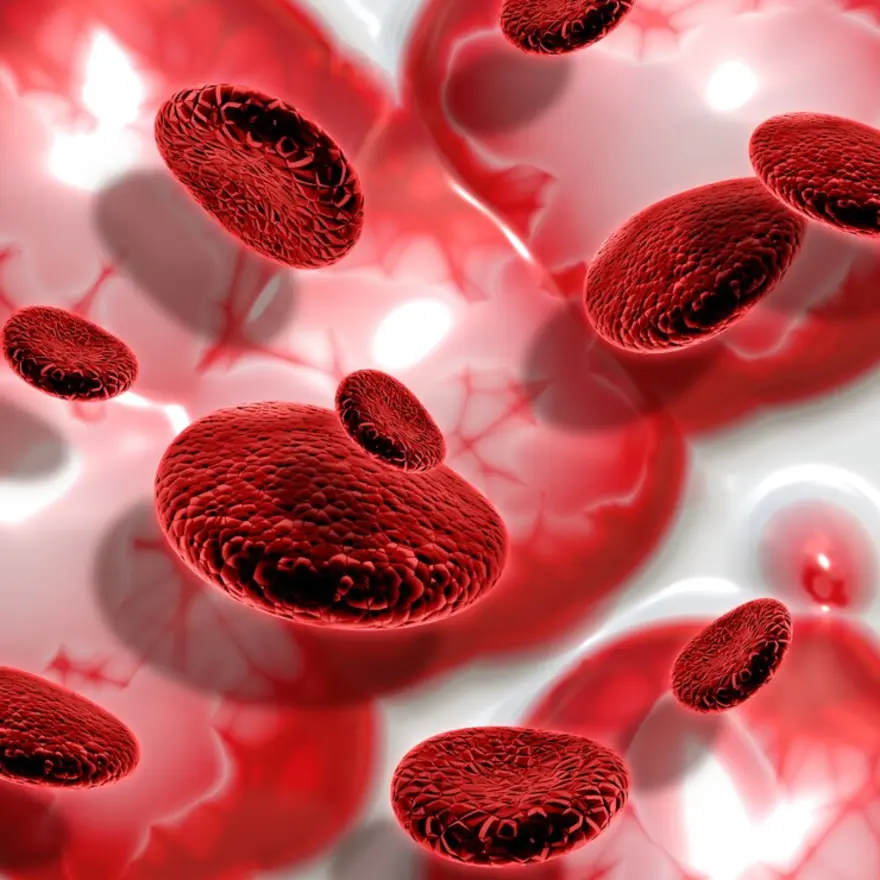Karyotyping by G-Banding, Peripheral Blood in Parel
50+ booked in last 3 daysKaryotyping Test in Parel Overview
A karyotype test analyses the shape, number, and size of chromosomes. Genes are present in chromosomes in cells. They are parts of deoxyribonucleic acid (DNA) passed down from one's parents. They contain information that defines one's unique traits, such as eye colour and height. Normally, people have 46 chromosomes in each cell, split into 23 pairs. Half of the chromosomes are from the father, and the other is from the mother. If the number of chromosomes is more or less than 46, or the shape or size of the chromosomes is unusual, it could indicate the presence of a genetic disease.
Karyotyping by G-banding peripheral blood is a test that examines a person's chromosomes for abnormalities in their number or structure. This test utilizes a special G-banding technique to stain chromosomes, revealing distinct banding patterns that allow cytogeneticists to identify any missing, extra, or rearranged chromosomes. This information is crucial for diagnosing various genetic conditions, birth defects, and some blood or lymphatic system disorders.
A karyotyping test is a genetic test that examines the size, shape, number, and arrangement of an individual's chromosomes. This test helps identify any abnormalities in the chromosomes, such as extra, missing, or structurally altered chromosomes. The karyotype blood test can be performed on various types of cells, including blood, amniotic fluid, chorionic villus, or bone marrow, making it a versatile diagnostic tool for a range of genetic conditions.
The karyotyping blood test in Parel plays a crucial role in identifying congenital anomalies, genetic disorders, and chromosomal abnormalities that may cause physical, behavioural, or developmental issues. It is also valuable in investigating the causes of repeated miscarriages, implantation failures, and infertility in couples. Furthermore, the karyotyping test in Parel assists in diagnosing birth defects, disabilities in children, and determining the sex of a person when it is not clear at birth.
Reasons for Undergoing the Karotyping Test in Parel
There are several reasons why a doctor may recommend a karyotyping test in Parel:
- Identification of Genetic Disorders: To detect congenital anomalies or chromosomal abnormalities in individuals with physical abnormalities, developmental delays, or behavioral issues
- Investigation of Repeated Miscarriages: Helps identify chromosomal issues causing recurrent miscarriages or implantation failures in couples trying to conceive
- Prenatal Diagnosis: Recommended for pregnant women, particularly those over 35 years old or with a family history of genetic disorders, to check for chromosomal abnormalities in the foetus
- Diagnosis of Birth Defects: To determine the genetic causes behind birth defects or disabilities in children
- Cancer and Blood Disorder Treatment: Useful in diagnosing chromosomal abnormalities associated with certain cancers and blood disorders, aiding in targeted treatment
- Sex Determination: Helps determine the sex of a newborn when there are ambiguities in physical sex characteristics
The karyotyping test in Parel provides critical insights for diagnosis, treatment, and genetic counseling.
List of Parameters Considered During the Karotyping Test in Parel
During a karyotyping test in Parel, several parameters are measured to evaluate the chromosomes:
- Number of Chromosomes: A normal human karyotype consists of 46 chromosomes arranged into 23 pairs, including the sex chromosomes (XX for females and XY for males).
- Structure of Chromosomes: The test examines the size, shape, and arrangement of each chromosome to identify any structural abnormalities such as translocations, deletions, or duplications.
- Arrangement of Chromosomes: The test checks for any abnormalities in the arrangement of chromosomes, such as inversions or ring chromosomes.
Karotyping Test Preparation
Preparing for a karyotyping test is generally straightforward. It is advisable to consult with a genetic counselor or a specialised doctor before the test, especially if you have had recent blood transfusions. Occasionally, you may be asked to fast for a short period before the test, but this is not always necessary.
Karotyping Test Results & Interpretation
The results of a karyotyping test are typically available within 1 to 2 weeks:
- Normal Results: A normal karyotype shows 46 chromosomes arranged into 23 pairs, with the sex chromosomes being XX for females and XY for males.
- Abnormal Results: Any deviation from the normal 46 chromosomes, such as having more or fewer chromosomes, or structural abnormalities like translocations or deletions, is considered abnormal. The clinical relevance and impact of an abnormal karyotype on an individual's health or treatment plan will be communicated by the requesting physician or genetic counselor.
Home Collection for Karotyping Test in Parel Near You
Metropolis Healthcare offers a convenient home collection service for the karyotyping blood test in Parel. A trained phlebotomist will visit your doorstep to collect the blood sample, ensuring comfort, safety, and adherence to high standards of sample handling. This service allows you to undergo the test without compromising on the accuracy of the results.
With Metropolis Healthcare's commitment to making healthcare accessible, you can expect timely and reliable results from the comfort of your home. Their dedication to providing quality diagnostic solutions conveniently at home underscores their drive to empower individuals to take proactive steps in managing their health.
Karyotyping by G-Banding, Peripheral Blood Price in Parel
Metropolis Healthcare is a leading diagnostics centre and pathology lab in India equipped with the latest state-of-the-art technologies that provides the Karyotyping by G-Banding, Peripheral Blood with a clear pricing structure
The price of Karyotyping by G-Banding, Peripheral Blood in Parel is ₹ 4,400.
We are committed to deliver accurate and quality results from the best labs in India with complete transparency regarding test cost and turnaround time. No matter where you are, we strive to offer patients high-quality service that is affordable and accessible.
Frequently Asked Questions
A karyotyping test is a genetic test that evaluates the size, shape, number, and arrangement of an individual's chromosomes. It identifies abnormalities in the chromosomes, such as extra, missing, or structurally altered ones, which can help diagnose various genetic disorders.
You can schedule a karyotyping test in Parel through several diagnostic centers and hospitals. Many labs, including Metropolis Healthcare, offer online booking or home sample collection services. You can visit their websites or contact them directly to book an appointment.
Yes, home sample collection is available for the karyotyping blood test in Parel. Several diagnostic centres such as Metropolis Healthcare offer this service, where a trained phlebotomist will visit your home to collect the blood sample, ensuring your comfort and convenience.
Normal results for a karyotype blood test show 46 chromosomes arranged into 23 pairs, with the sex chromosomes being XX for females and XY for males. Any deviation from this pattern is considered an abnormal result.
A karyotyping test is used to identify genetic disorders, investigate the cause of miscarriages or infertility, diagnose birth defects, and aid in the treatment of certain cancers and blood disorders. It provides valuable insights into an individual's genetic makeup.
The frequency of karyotyping tests depends on individual circumstances. It is typically recommended when there are specific indications, such as genetic disorders, repeated miscarriages, or fertility issues. It is not a routine test and is usually performed based on medical necessity.
The timing of the karyotyping test depends on the reason for the test. For prenatal testing, it can be done between 11-14 weeks (CVS) or 15-20 weeks (amniocentesis) of pregnancy. For other indications, it can be done at any time based on medical advice.
Generally, fasting is not required for a karyotyping test.
It is advisable to inform your doctor about any recent blood transfusions or medications you are taking. Additionally, you should clear any doubts with your genetic counsellor or doctor regarding factors that could affect the karyotyping test results.
The karyotyping test includes the evaluation of the number, size, shape, and arrangement of chromosomes. It checks for numerical and structural abnormalities in the chromosomes, providing a comprehensive analysis of an individual's genetic makeup.
The karyotyping test involves cell collection, typically from blood, amniotic fluid, or chorionic villus, and culturing them to halt cell division at a stage where chromosomes are visible. The chromosomes are then stained, photographed, and analyzed using specialized computer software.
The karyotyping test is typically performed based on specific medical indications, such as congenital abnormalities, recurrent miscarriages, suspected chromosomal issues in a fetus, infertility concerns, or certain types of cancer or blood disorders.
The actual blood sample collection for a karyotyping test takes only a few minutes.
The turnaround time for reports of a karyotyping test in Parel is usually within 15 days from day/time of sample collection and processing. However, the exact turnaround time may vary slightly depending on the diagnostic centre or pathology lab.
Ratings & Reviews (0)
Why Metropolis?
Metropolis has a team of 200 senior pathologists and over 2000 technicians delivering diagnostic solutions in the areas of routine, semi specialty and super specialty domains like Oncology, Neurology, Gynaecology, Nephrology and many more.
We offer a comprehensive range of 4000+ clinical laboratory tests and profiles, which are used for prediction, early detection, diagnostic screening, confirmation and/or monitoring of the disease.



.png)
















 WhatsApp
WhatsApp